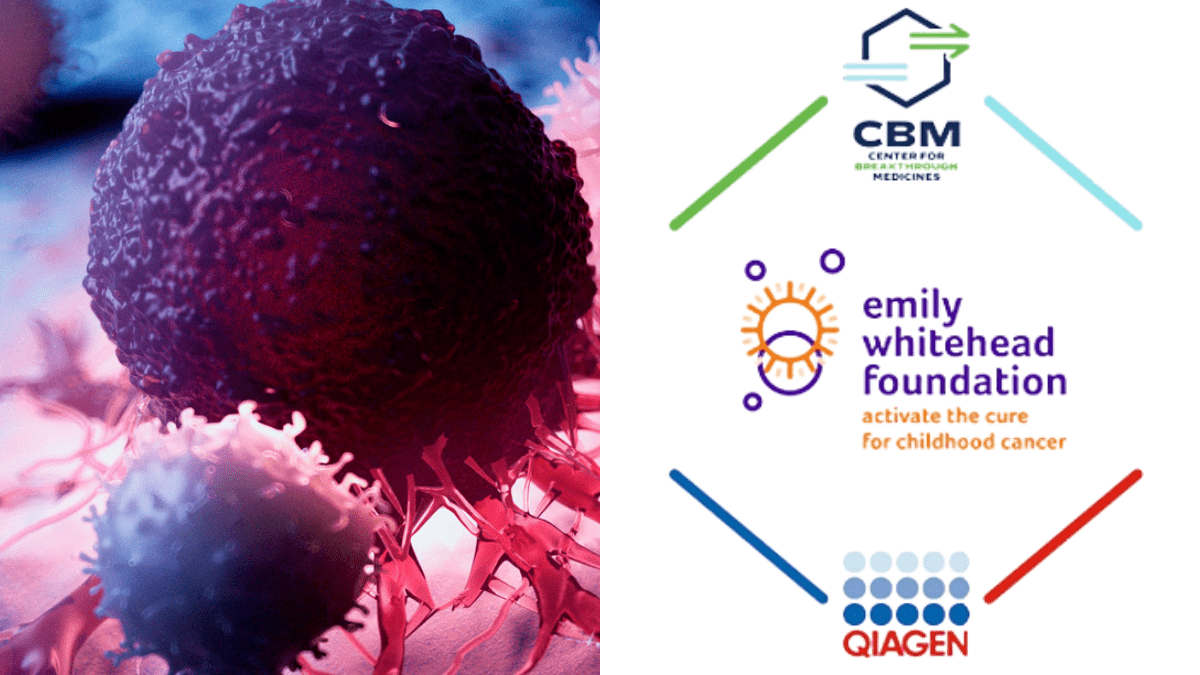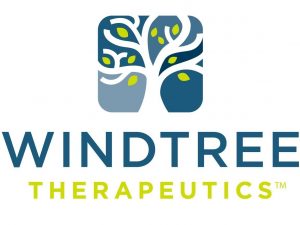
Center for Breakthrough Medicines, QIAGEN Team Up to Raise Funds for Emily Whitehead Foundation
When the U.S. Food and Drug Administration greenlit Novartis’ Kymriah, the first CAR-T therapy for hematological cancers, former FDA Commissioner Scott Gottlieb called the cutting-edge treatment “an inflection point” in the “ability to treat and even cure many intractable illnesses.”
Since Kymriah’s first approval in 2017, six CAR T-cell therapies have been approved by the FDA, all for different forms of blood cancer, such as lymphomas, leukemia, and multiple myeloma. As Gottlieb predicted, cell therapies have provided significant hope for cancer patients, both young and old, with many of them enjoying results they had not experienced with other therapies.
One of those patients is Emily Whitehead. She was the first pediatric patient treated with Kymriah in a clinical trial at the Children’s Hospital of Pennsylvania (CHOP). When she was treated with the cell therapy, she was only six years old. The year was 2012, five years before Kymriah, a CD19-directed genetically modified autologous T cell immunotherapy that was developed with the help of research scientists at the University of Pennsylvania, was approved by the FDA.
One decade after that treatment, Emily is free from her cancer. She celebrated her 10-year anniversary on May 10. The promises of CAR-T are evident in the fact that Emily is still alive—had she not been allowed to participate in the study, Emily would not be here today. Prior to the experimental treatment at CHOP, Emily’s treating physicians had run out of options. Her parents had been told there was nothing else her medical team could do and sent her home to die peacefully. Fortunately for Emily, her parents continued to search for a solution until they came upon the program at CHOP.
Today, the Emily Whitehead Foundation, launched by Emily’s parents, raises funds to support childhood cancer treatments, such as CAR-T therapies. Since its launch in 2015, the fund has raised hundreds of thousands of dollars each year to back these therapeutic programs. To date, the Emily Whitehead Foundation has contributed over $825,000 toward advancements in CAR T-cell therapy research.
“We experienced firsthand how cancer research is saving lives; however, children are still losing their lives every day because of limited treatment options for high-risk patients like Emily,” the Whitehead family said on the website.
For the past two years, those fundraising efforts have been backed by the Center for Breakthrough Medicines and QIAGEN. On Aug. 2, the two organizations will come together for the second annual Patients Day, which will be held at the Discovery Labs campus.
“We hope this event will lead to collaborations that expedite access to the next-generation of safe and curative therapies,” the organizers said in the announcement.
Tom Whitehead, father of Emily, expressed gratitude for the Patients Day fundraising efforts. He noted the importance of continuing to fund pediatric cancer research and the revolutionary approach through CAR-T.
“Our family is extremely grateful for everyone’s hard work to keep this Revolution moving forward and we try every day to pay it forward so other patient’s families can have the same outcome as our family has had,” Whitehead said.
Raising funds for pediatric cancer research is essential since research into childhood cancers receives less than 4% of the National Cancer Institute budget set aside to support studies. However, pediatric cancer patients who see their disease return after initial treatment are more difficult to treat due to the fact their cancer becomes more resistant to standard treatments, driving home the point that cutting edge treatments such as CAR-T cell therapies are in high demand to give patients more options.
Raymond Blanchard, Director of Business Development at QIAGEN, called Emily Whitehead a “shining success story” for the tools of the genetics medicine revolution. QIAGEN uses its next-generation sequencing capabilities to bolster cell therapy research.
“The foundation, named for her, now leads a growing effort to raise awareness and funding to bring together all the complex tools needed to share this success to others. QIAGEN, as a leading supplier of the molecular biology tools for genomics research, embraces the Emily Whitehead Foundation’s efforts as an extension of our own vision to make improvements in life possible,” Blanchard told BioBuzz.
Audrey Greenberg, Co-Founder of the Center for Breakthrough Medicines and also Executive Director of The Discovery Labs, echoed Blanchard’s appreciation of the success Emily Whitehead experienced with the CAR-T treatment.
“CBM’s mission is centered around the patient. Creating awareness around childhood cancer, possible treatments, and next generation technologies is at the heart of what we do. CBM enables the expedition of cell therapies and supporting causes such as the Emily Whitehead Foundation helps to fund innovative cancer treatments such as CAR T-cell therapy,” Greenberg said.
The King of Prussia-based CBM is doing its part to support the development of cell therapies. The organization is on a mission to build capacity to manufacture more than 10,000 patient therapies in direct response to the critical shortage of cell therapy supply. This will help patients win their courageous battles against cancer, the Center announced last month. This year alone, CBM is expected to build out 680,000 square feet of space, with 500,000 square feet expected to be completed by the end of 2022.
“We are acutely aware of the importance of getting these lifesaving therapies to patients immediately,” Joerg Ahlgrimm, Chief Executive Officer of CBM said in a statement. “We share their race against time and apply extreme urgency to everything we do. There is a critical shortage of cell therapy manufacturing in the world forcing doctors to make heartbreaking decisions resulting in patient deaths that could be avoided. We focus every day on our patients and their families, so the intense urgency of our mission is never compromised.”




